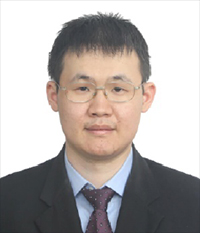Near-optimal data-driven control for assemble-to-order systems
The literature on periodic-review assemble-to-order (ATO) systems has long assumed that the demand distribution is exactly known. In practice, this may not be true and only a limited sample of historical demand data is available. In this paper, we study data-driven ATO systems under the criteria of long-run average cost. The task is complicated by the demand learning of multiple products, synchronisation between different components’ ordering decisions under non-identical lead times, and allocation to different products’ assembly. To the best of our knowledge, our work is the first to analyse sample average approximation (SAA) in data-driven ATO systems and the first to propose an algorithm that finds a near-optimal solution. Surprisingly, we prove that the error of SAA in optimizing over the infinite-dimensional space of policies of an ATO problem compares only logarithmically larger than that over a finite-dimensional Euclidean space. We show that the complexities associated with demand learning and high-dimensional policy optimisation can be captured by properly combining a specifically designed model-free reinforcement learning (RL) algorithm with SAA, which enriches the classical inventory control literature on ATO systems. To speed up numerical computation, we prove the convexity and asymmetric Lipschitz continuity of the cost-to-go functions and design a specialized model-free RL algorithm. Using an extensive numerical study, we show that our proposed algorithm consistently and notably outperforms existing heuristic policies and an off-the-shelf RL algorithm. Our numerical results suggest that the no-holdback rule – a commonly adopted heuristic in ATO systems – may lead to a double digit performance loss.
Speaker’s profile

Lun Yu is currently an assistant professor in Chinese University of Hong Kong, Shenzhen. Previously, he received his PhD degree in 2020 at the department of Industrial Engineering and Management Sciences in Northwestern University and worked as a postdoctoral fellow at Tsinghua University and UC Berkeley. Lun’s research focuses on performance analysis and optimal controls of service systems using asymptotic analysis, online learning, reinforcement learning, and more general tools from applied probability, machine learning, statistics and optimisation.
For more information about the ESD Seminar, please email esd_invite@sutd.edu.sg
